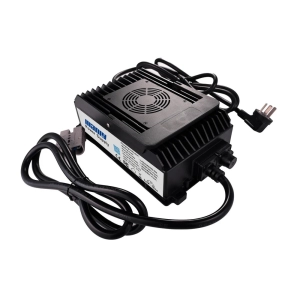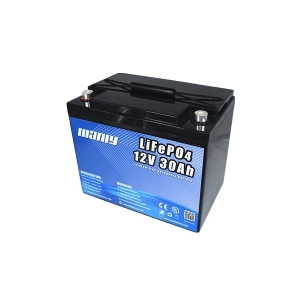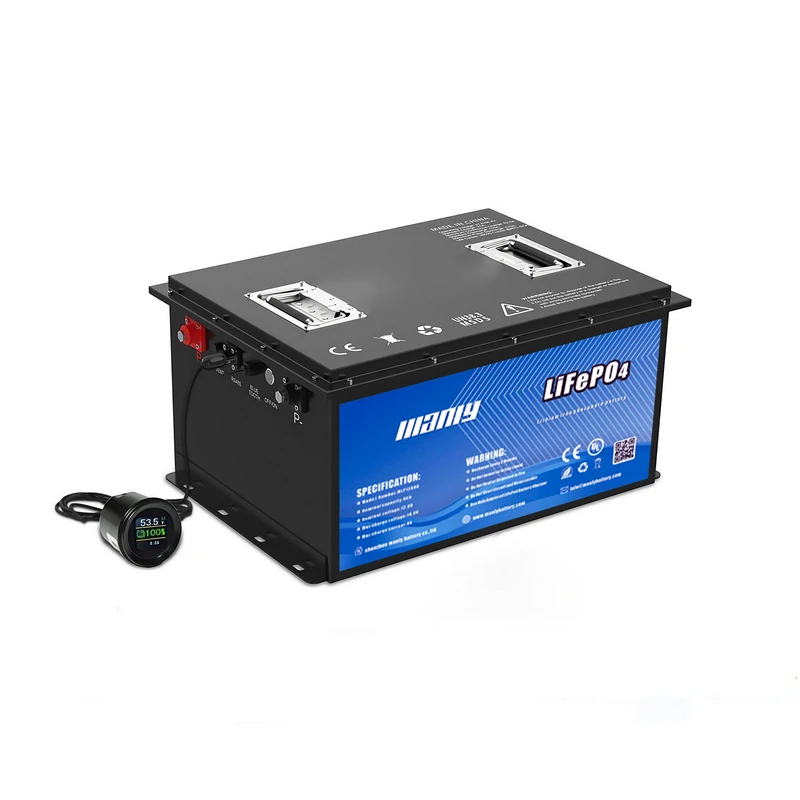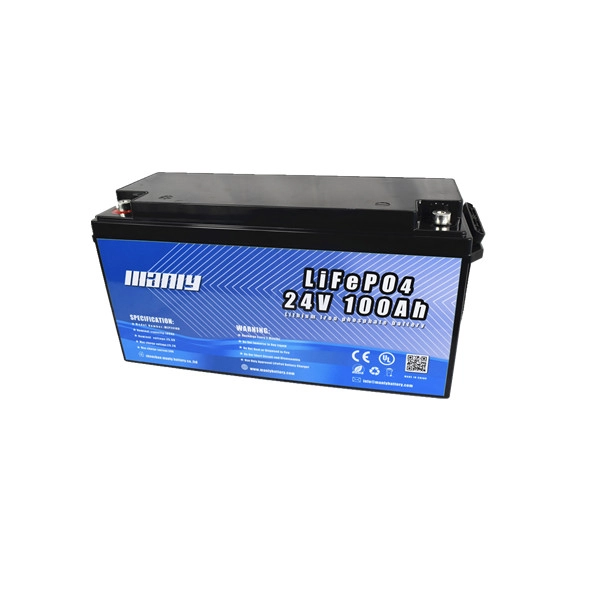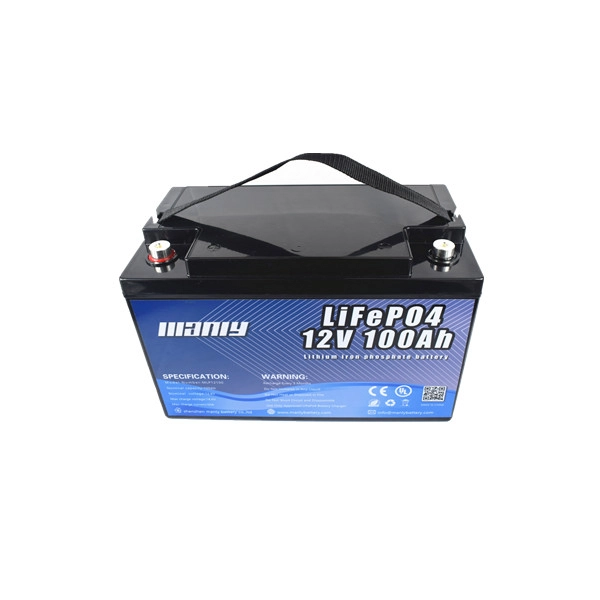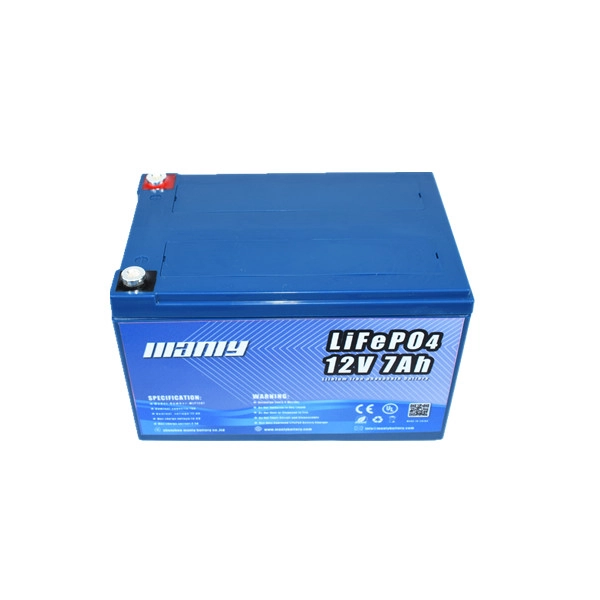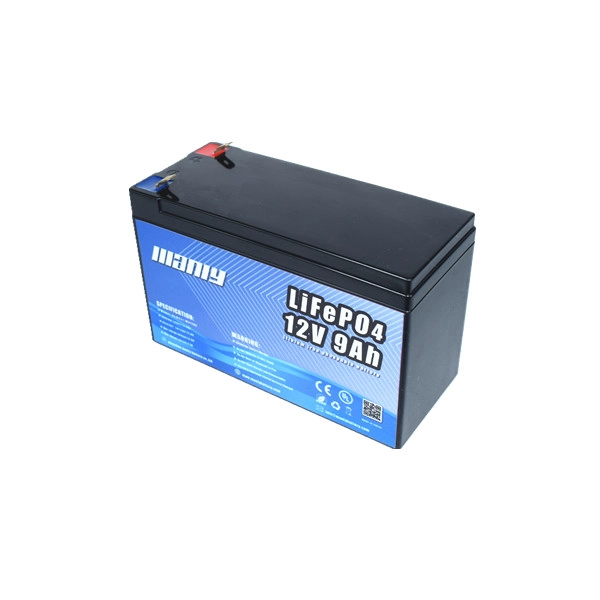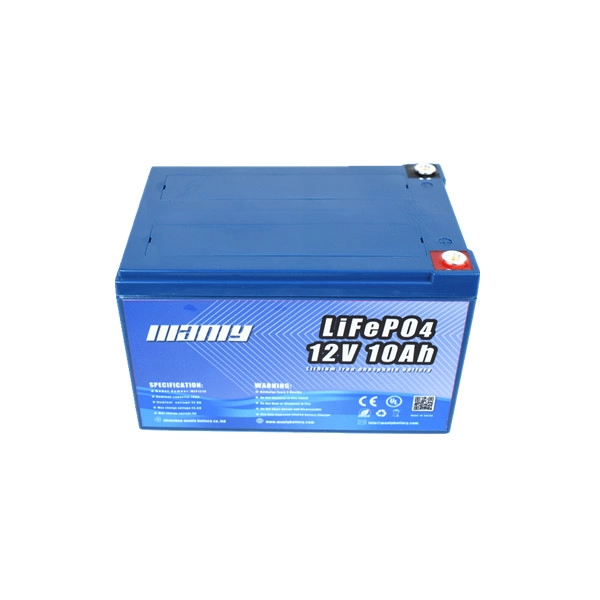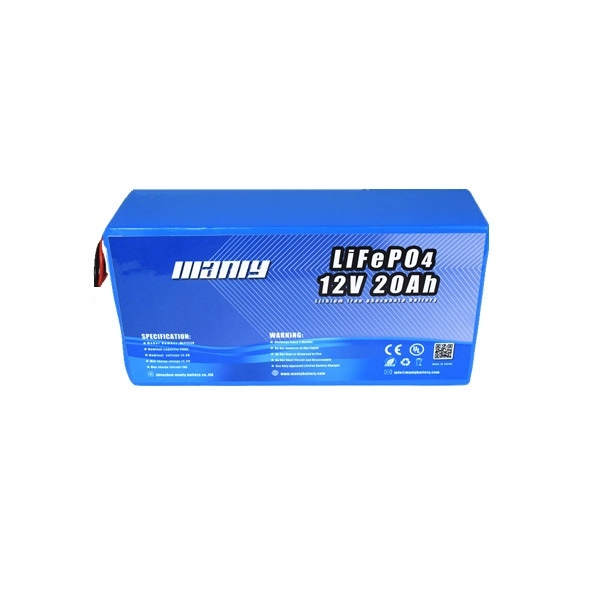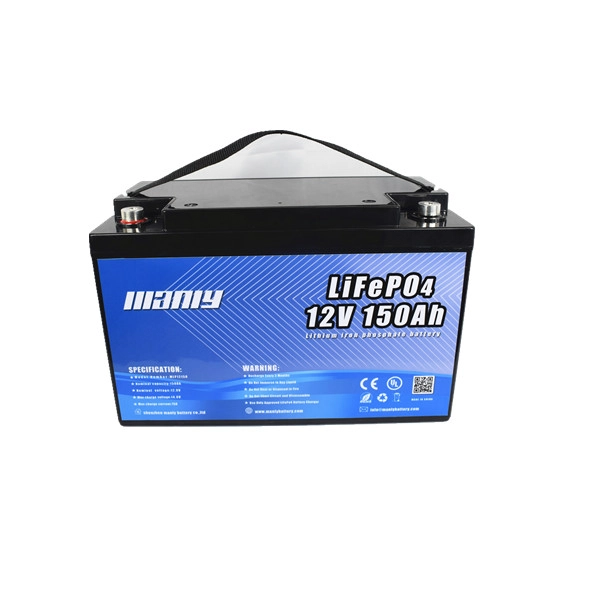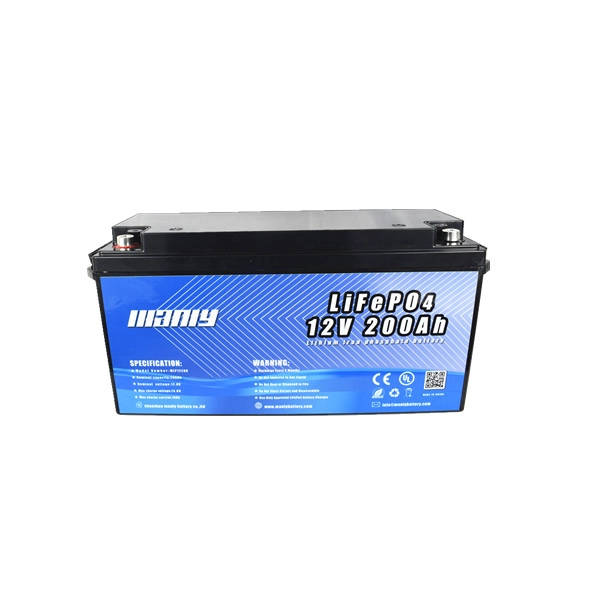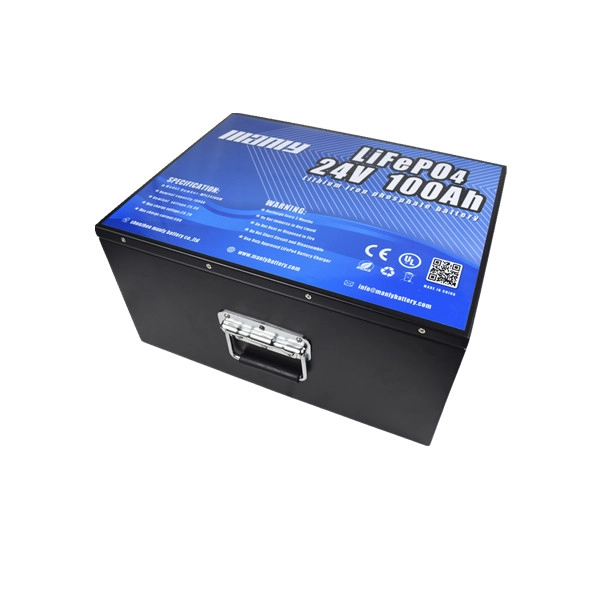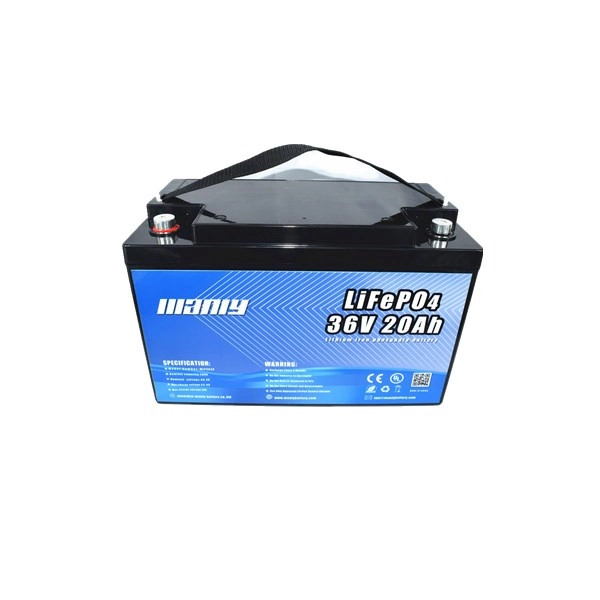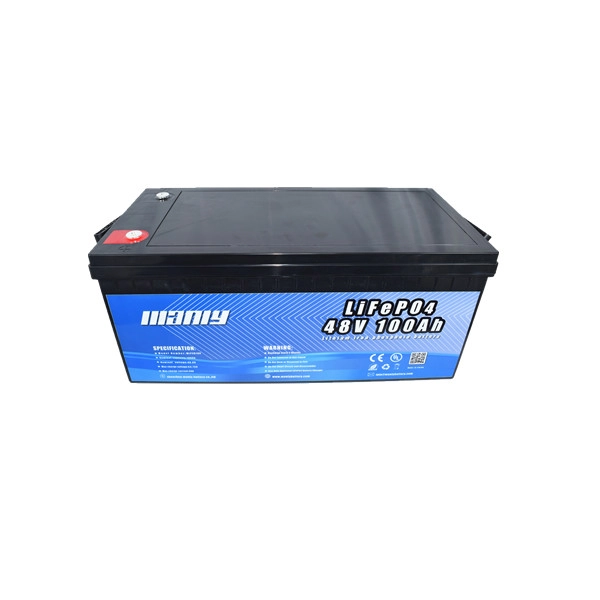2024 ¿Cuánto pesa una batería marina?
Tabla de contenido
- 2024 ¿Cuánto pesa una batería marina?
- Importancia del peso de la batería en aplicaciones marinas
- Las opciones de baterías marinas más ligeras
- Rangos de peso típicos para baterías marinas
- ¿Cuánto pesa una batería de 12 V para barco?
- Diferencias de peso entre tipos de baterías
- Pesos de varios tamaños de baterías marinas
- Diferencias de peso entre las baterías marinas de arranque y de ciclo profundo
- ¿Pesa más una batería completamente cargada?
- Cómo el peso de la batería afecta el rendimiento marino
- Comparación de peso entre baterías marinas de celda húmeda y de celda seca
- Cómo se compara el peso de la batería marina con el peso de la batería de automóviles y vehículos recreativos
- Calcular el peso total de la batería de su embarcación
- Elegir entre peso, rendimiento y coste en baterías para barcos
- Fabricante de baterías para barcos
- Conclusión
- Más información sobre la batería
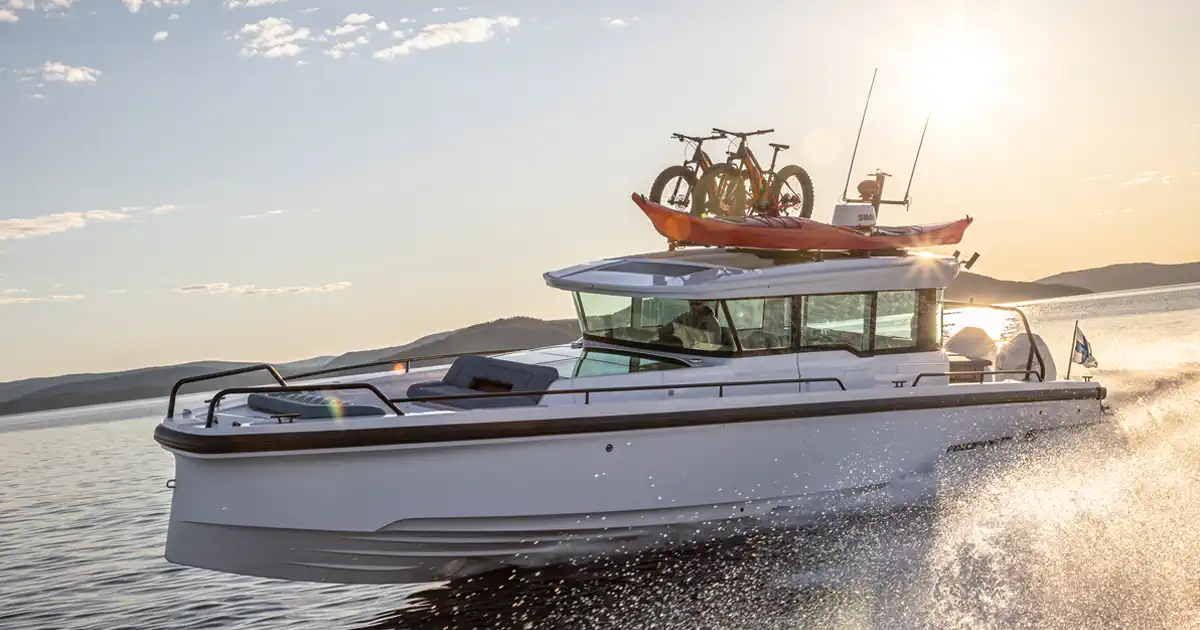
Importancia del peso de la batería en aplicaciones marinas
When it comes to marine applications, battery weight plays a crucial role in overall performance. Heavier batteries can slow down a boat and make it harder to maneuver, especially for smaller vessels like kayaks and canoes. Excess weight raises the boat’s center of gravity, increasing the risk of tipping and instability. Additionally, a heavier battery requires counterbalancing, which adds even more weight. This extra load reduces the power-to-weight ratio, causing the engine to work harder and leading to higher fuel consumption and lower efficiency. Even a small reduction in battery weight can significantly enhance speed and handling, especially for boats under 20 feet. Keeping batteries lightweight is essential for improving performance and safety across all types of marine craft.Las opciones de baterías marinas más ligeras
The lightest marine battery option currently available is the marine lithium battery. These batteries can weigh 60-70% less than comparable lead-acid batteries with similar capacities. For example, a 100Ah lithium boat battery might weigh between 20-30 pounds, while a lead-acid counterpart could weigh anywhere from 60 to 100 pounds. This substantial difference makes lithium boat batteries the ultimate choice for weight-conscious boaters. A comparison of typical 100Ah battery weights highlights this advantage:- Iones de litio:20 – 35 libras
- Ácido de plomo AGM:60 – 80 libras
- Ácido de plomo en gel:60 – 80 libras
- Ácido de plomo de celda húmeda:80 – 120+ libras
Rangos de peso típicos para baterías marinas
Marine batteries vary significantly in weight depending on their type and specifications. Understanding the typical weight range can help boaters choose the right boat battery for their needs. Here’s a breakdown of the expected weights for different battery types:- Iones de litio:16 – 32 libras
- Ácido de plomo AGM:30 – 60 libras
- Ácido de plomo en gel:35 – 75 libras
- Plomo-ácido (celda húmeda):50 – 120+ libras
¿Cuánto pesa una batería de 12 V para barco?
The weight of a batería de 12v para barcoEl uso puede variar según su tipo y capacidad. En general, esto es lo que puede esperar:- Baterías de litio para barcos de 12 V:Alrededor de 20 a 35 libras
- Baterías AGM de 12V:Normalmente pesa entre 30 y 60 libras.
- Baterías de gel de 12 V:Generalmente oscila entre 35 y 75 libras.
- Baterías de celda húmeda de 12 V:Puede pesar entre 50 y 120+ libras
Tipos de baterías para barcos de 12 V
There are several types of baterías de barco de 12vdisponibles, cada uno con características únicas:- Baterías de litio:Conocida por ser la batería marina más liviana, que ofrece alta densidad de energía y larga vida útil.
- Baterías AGM:Proporcionan un buen rendimiento y son a prueba de derrames, pero son más pesados que el litio.
- Baterías de gel:Al igual que los AGM, son seguros y confiables, pero aún así son más pesados.
- Baterías de celdas húmedas:La opción tradicional, son las más pesadas y menos eficientes en comparación con las alternativas de litio.
¿Todas las baterías marinas son de 12 V?
Not all marine batteries are 12V. While many smaller boats utilize 12V systems, larger vessels may use higher voltage batteries, such as 24V or 48V, for their power needs. The choice of voltage depends on the boat’s size, required power output, and electrical system design.Factores que influyen en el peso de la batería
Several factors influence peso de la batería, incluido:- Tipo de Batería:Las baterías de litio suelen ser mucho más ligeras que las opciones de plomo-ácido.
- Capacidad:Las baterías de mayor capacidad tienden a pesar más debido a la mayor cantidad de materiales utilizados.
- Diseño:Los materiales utilizados en la construcción, como las placas de plomo de las baterías tradicionales, contribuyen significativamente al peso.
- Tamaño del grupo:Los diferentes tamaños de baterías marinas tienen dimensiones específicas que afectan su peso total.
Comparación de las baterías para barcos más pesadas y ligeras
When comparing the heaviest and lightest options:- Batería marina más ligera:Las baterías de litio lideran el camino, y algunos modelos pesan tan solo 16 libras para capacidades equivalentes.
- Batería de barco más pesada:Las baterías tradicionales de plomo-ácido inundadas pueden superar las 120 libras, especialmente en grupos más grandes como el Grupo 31.
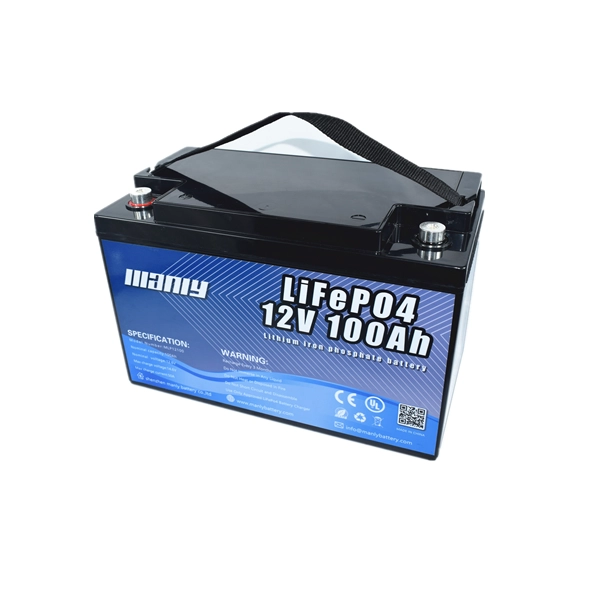
Diferencias de peso entre tipos de baterías
Understanding the weight differences between various battery types is crucial for selecting the right marine battery for your vessel. Each type has its own characteristics that affect battery weight, making it essential to choose wisely.Pesos de baterías de plomo-ácido
Flooded lead-acid batteries are the heaviest among marine batteries. Typically, their weights range from 50 to over 120 pounds, depending on the specific group size. For example, a group 31 battery weight can easily reach 70-90 lbs. This significant weight is due to the dense lead plates and liquid sulfuric acid inside, making them less suitable for weight-sensitive applications.Pesos de la batería AGM
Absorbed Glass Mat (AGM) batteries are a popular choice for many boaters. They generally weigh between 30 and 60 pounds, making them lighter than traditional lead-acid batteries but still heavier than marine lithium batteries. AGM batteries offer good performance and are spill-proof, but their weight can impact overall boat agility.Pesos de batería de gel
Gel batteries are similar to AGM in weight, typically ranging from 35 to 75 pounds. These batteries contain a gel electrolyte, making them safer and less prone to leaks. However, they still don’t match the lightweight nature of lithium options. Their weight can be a consideration for smaller boats where every pound counts.Pesos de baterías de iones de litio
Lithium-ion batteries are the lightest marine battery option available today. Weighing between 16 and 32 pounds, they provide substantial weight savings compared to lead-acid and AGM batteries. For instance, a 100Ah lithium boat battery can weigh as little as 20-30 lbs, significantly enhancing performance and efficiency. The lightweight design and higher energy density make lithium batteries an ideal choice for modern marine applications.By comparing these weights, boaters can make informed decisions based on their specific needs, balancing battery weight with performance and capacity.Pesos de varios tamaños de baterías marinas
The weight of baterías marinaspuede variar significativamente dependiendo del tamaño de su grupo, que se refiere a sus dimensiones físicas: largo, ancho y alto. Comprender estos pesos es vital para elegir el peso correcto.batería de barcopara su embarcación. A continuación se muestran los tamaños de grupo comunes y sus pesos típicos:- Grupo 24:Generalmente pesa entre 50 y 70 libras. Este tamaño es popular para embarcaciones más pequeñas y se utiliza a menudo para aplicaciones de arranque y ciclo profundo.
- Grupo 27:Por lo general pesa entre 60 y 80 libras. Este grupo es ligeramente más grande y proporciona más potencia, lo que lo hace adecuado para embarcaciones de tamaño mediano.
- Grupo 31:Una opción común para embarcaciones más grandes, el peso de la batería del grupo 31 oscila entre 70 y 100 libras. Estas baterías se utilizan a menudo para aplicaciones de ciclo profundo debido a su capacidad.
- Grupo 8D:Esta es una de las opciones más pesadas, con un peso de entre 100 y 120 libras. Se utiliza principalmente en embarcaciones más grandes que requieren una potencia sustancial.
Diferencias de peso entre las baterías marinas de arranque y de ciclo profundo
Starting and deep cycle batteries serve different purposes, and their weights reflect these differences.Starting Batteries are designed to provide a short burst of high current to start an engine. They typically weigh less than deep cycle batteries because they have thinner plates and are built for quick discharge. A lightweight boat battery of this type might weigh around 30 to 60 lbs, depending on the group size.Deep Cycle Batteries, on the other hand, are built to provide sustained power over a longer period. These batteries are generally heavier, often weighing between 50 and 120 lbs. Their thicker plates allow for deeper discharges and longer usage times. For instance, a group 31 battery weight for a deep cycle option can reach the higher end of that range, making it more suitable for powering electronics and other equipment over time.Understanding the weight differences between these battery types can help boaters choose the right option for their specific needs, balancing weight with performance and capacity requirements.¿Pesa más una batería completamente cargada?
The question of whether a fully charged battery weighs more is an interesting one. In general, a batería de barcono cambia significativamente de peso cuando está completamente cargado en comparación con cuando está descargado. Las reacciones químicas que ocurren dentro de la batería no agregan ni eliminan ningún material; simplemente cambian el estado del electrolito. Por lo tanto, ya sea una batería marina o baterías de litio marinas, el peso sigue siendo prácticamente el mismo, independientemente del nivel de carga.Cómo el peso de la batería afecta el rendimiento marino
Battery weight has a direct impact on marine performance. A lighter battery, such as the lightest marine battery options available, can enhance speed, maneuverability, and fuel efficiency. For smaller vessels, a lightweight boat battery can improve responsiveness, making it easier to navigate and control the boat. Excessive battery weight can raise the boat's center of gravity, making it more prone to tipping and less stable, which can compromise safety.For larger boats, while they may accommodate heavier batteries better, excess weight still affects overall performance. It can reduce the engine's efficiency, requiring more fuel to maintain speed and leading to slower acceleration. This is particularly important for boaters looking to optimize their vessel's performance for long trips or competitive situations.By choosing the appropriate battery weight, boaters can ensure better handling, improved speed, and enhanced overall performance on the water.Comparación de peso entre baterías marinas de celda húmeda y de celda seca
Yes, there is a notable weight difference between wet-cell and dry-cell marine batteries. Wet-cell batteries, such as traditional flooded lead-acid types, tend to be heavier due to the liquid electrolyte they contain. Their weight can range from 50 to over 120 lbs, making them some of the heaviest options available. In contrast, dry-cell batteries, including AGM (Absorbed Glass Mat) and lithium boat batteries, are generally lighter. For example, AGM batteries typically weigh between 30 and 60 lbs, while marine lithium batteries can weigh as little as 16 to 35 lbs. This significant difference in battery weight makes dry-cell options more favorable for those looking to reduce the overall weight of their vessel, enhancing performance and maneuverability.Cómo se compara el peso de la batería marina con el peso de la batería de automóviles y vehículos recreativos
When comparing marine battery sizes to car or RV batteries, it's essential to consider their specific applications and weight ranges. Car batteries are generally similar in weight to smaller marine batteries, typically ranging from 30 to 50 lbs. However, larger RV batteries, especially those designed for deep cycle use, can weigh significantly more, often between 60 and 120 lbs, similar to heavier marine batteries like group 31 battery weight options.In summary, while there are overlaps in weight categories, marine batteries tend to be designed for different use cases, focusing on weight distribution and performance in watercraft. The lighter options in the marine category, particularly lithium boat batteries, offer distinct advantages in performance compared to the traditional heavyweights found in automotive and RV applications. By choosing the right battery weight for their needs, boaters can optimize performance while maintaining the balance and efficiency of their vessels.Calcular el peso total de la batería de su embarcación
When planning for a boat battery system, understanding the battery weight is crucial for overall vessel performance. To calculate the total battery weight, start by identifying the number of batteries you'll use and their individual weights. For instance, if you’re using a group 31 battery, which typically weighs around 70-80 pounds, multiply this weight by the number of batteries. Additionally, consider the marine battery sizes and marine battery dimensions to ensure they fit properly in your boat’s designated battery compartment. Always include any extra weight from accessories, such as connectors or mounting hardware, to get an accurate total. By carefully calculating the total battery weight, you can ensure optimal performance and balance for your vessel.Elegir entre peso, rendimiento y coste en baterías para barcos
Selecting the right boat battery involves balancing weight, performance, and cost. Lightweight options, like marine lithium batteries, offer substantial benefits, including longer lifespans and faster charging times, which enhance overall performance. However, they may come at a higher initial cost. In contrast, traditional lead-acid batteries might be more affordable but can weigh significantly more, impacting your boat’s agility and speed. When considering the lightest marine battery options, weigh the benefits against your budget and intended use. Evaluate factors such as marine battery sizes and whether the reduced weight aligns with your performance goals. Ultimately, the right choice will depend on your specific boating needs and how you prioritize each aspect of battery selection.Fabricante de baterías para barcos
 When it comes to choosing a reliable boat battery, the manufacturer plays a crucial role in ensuring quality and performance. MANLY Battery stands out as a premier producer of marine batteries, with over 13 years of excellence in the industry. Located in key regions of China, such as Shenzhen, Dongguan, and Huizhou, MANLY operates a state-of-the-art facility covering 65,000 square meters. With an impressive daily production capacity of over 3,000 batteries, MANLY delivers a wide range of battery solutions, including marine lithium batteries that cater to diverse applications, from solar energy systems to advanced robotics.The company's commitment to quality is underscored by its global certifications, including UN38.3 and UL, ensuring that each lightweight boat battery meets rigorous safety standards. MANLY also offers customization options to fit specific needs, making it a trusted choice for boaters looking for the lightest marine battery solutions. With a 10-year warranty and features such as short circuit protection and optimal performance under extreme temperatures, MANLY Battery is dedicated to providing exceptional products that enhance marine performance and reliability.
When it comes to choosing a reliable boat battery, the manufacturer plays a crucial role in ensuring quality and performance. MANLY Battery stands out as a premier producer of marine batteries, with over 13 years of excellence in the industry. Located in key regions of China, such as Shenzhen, Dongguan, and Huizhou, MANLY operates a state-of-the-art facility covering 65,000 square meters. With an impressive daily production capacity of over 3,000 batteries, MANLY delivers a wide range of battery solutions, including marine lithium batteries that cater to diverse applications, from solar energy systems to advanced robotics.The company's commitment to quality is underscored by its global certifications, including UN38.3 and UL, ensuring that each lightweight boat battery meets rigorous safety standards. MANLY also offers customization options to fit specific needs, making it a trusted choice for boaters looking for the lightest marine battery solutions. With a 10-year warranty and features such as short circuit protection and optimal performance under extreme temperatures, MANLY Battery is dedicated to providing exceptional products that enhance marine performance and reliability.
